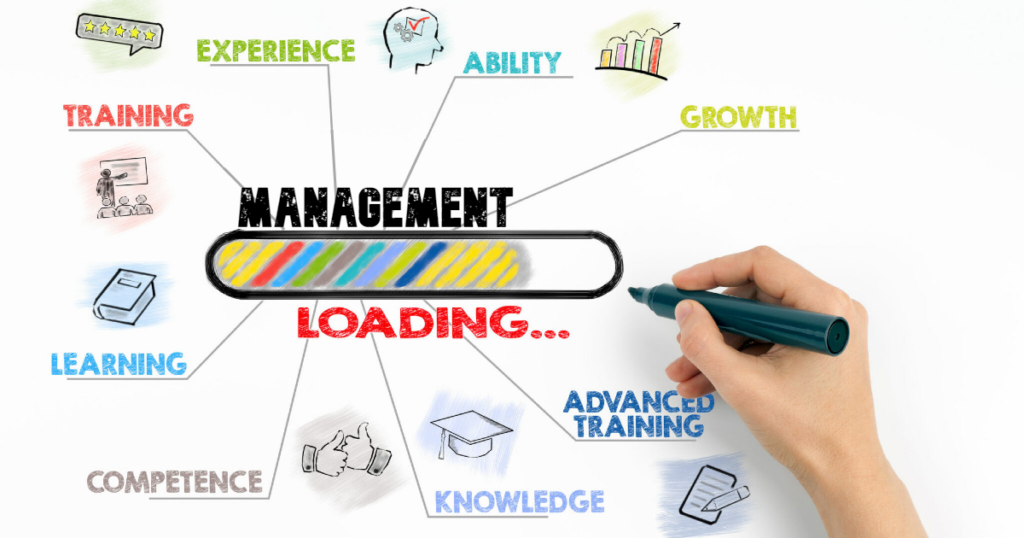
Management skills can be used in any industry or on any career path and they're a valuable asset for just about anyone looking to move up the ladder. In this article, we will discuss how these skills can help you professionally while also offering some tips for task and project opportunities that may increase your exposure as a manager.
Management is about staying level-headed, thinking ahead and understanding that it isn't just about yourself. There are always other factors to consider so being able to juggle the big picture with smaller details is also key.
Management is the foundation of every business and industry. It can be used in service, retail or other company types to ensure that projects run smoothly and efficiently which will improve productivity as a whole. Management is also important for those who work independently such as freelancers and entrepreneurs because it allows them to expand their client base by attracting new customers with presentations/speech-making skills while keeping old clients happy through exceptional organisation abilities.
Management skills cannot directly result in profit but they do allow teams to work together seamlessly which enables them to reach their potential as a unit rather than just as individual workers who happen to be on the same team.
In broad terms, management abilities can be anything that allows you to manage people effectively. Although certain talents will vary depending on your line of work, there are several that are common across virtually every job. The following list includes some examples of different types of management skills:
In daily life, we all run into disagreements and conflicts with our co-workers at one point or another. Being able to manage these disputes in a smooth and efficient manner will help prevent them from becoming serious problems and stop them from impacting the productivity of other members on your team.
In the office, school and other types of jobs, communication is a skill that can be used to connect with your colleagues on a professional level. Although there are many different types of communication abilities, the ones that matter most in an office setting are clear speaking skills, active listening and excellent presentation/speech-making abilities.

A person is able to motivate others when they're able to pique their interest in an activity or task. This can be accomplished through a variety of different methods such as increasing their knowledge on the subject, encouraging them with inspirational messages and demonstrating how this particular project is beneficial to everyone involved.
During our working lives, we are inevitably assigned several projects at once which can range in scope from small to large. This style of management is about being able to control the entire process while also delegating specific tasks depending on your skill set.
In your career, you will need to stay focused in any situation and always be ready to face new challenges when they arise. Being able to change with the times makes it easier to resolve issues that might occur so being adaptable will help you climb the corporate ladder.
Time management is the ability to prioritise tasks effectively, ensuring that everyone on your team gets their jobs done in a timely manner. This allows projects to run more smoothly and meet important deadlines without sacrificing quality or other aspects of success.
Delegation is the ability to assign tasks to team members and prioritise effectively. Depending on the situation, managers may need to choose a certain task or project as their priority for whatever reason – whether it's due date, budget constraints, etc. – which requires strong prioritisation skills that can help create an effective schedule everyone can work from efficiently.
Leadership is the ability to influence others to achieve a common goal. Leaders motivate their team members through inspiration and encouragement, ensuring that everyone pulls their weight, shares new ideas about how best to move forward with the project and creates an environment where levels of productivity are high.
Professionalism can be defined as the act of conducting yourself in a manner that's expected of your trade. For example, people who are in the business of customer relations should be able to communicate politely and clearly with everyone they meet while maintaining a positive attitude under all circumstances.

A manager and subordinate can utilise these types of skills to work together on a project that'll have a positive impact on everyone involved. This includes building strong relationships with team members, giving sound advice and being able to resolve disputes in a professional manner.
Managers who have effective communication skills will be able to convey instructions clearly so there's no confusion among employees on how something should be completed. Likewise, a manager who's able to plan and prioritise tasks effectively will be capable of creating an actionable schedule that everyone can use as a guide. This ensures that no deadlines are missed and there's always time allotted for new elements when they arise during the project's lifespan.
Subordinates who are good at taking direction will be able to help the team succeed by following specific instructions. The ability to manage time well can prevent people from becoming overwhelmed with too many tasks while also making it possible for them to complete assignments in a timely manner so they don't miss deadlines or become an inconvenience to clients or other business professionals.
Different types of management skills are ideal for different industries and career paths, depending on the specific requirements or expectations of those areas. For example, managers working in creative fields such as graphic design may require innovative thinking abilities to come up with new ideas while also prioritising effectively so projects can run smoothly without sacrificing quality.
Different types of management skills are ideal for different industries and career paths, depending on the specific requirements or expectations. The most important aspect is recognising how each skill plays into their day-to-day responsibilities within a given work setting and using it to increase productivity. An individual might need management skills in the form of listening and communication while they're in a more junior role, while someone who's in management might need leadership skills in addition to delegation abilities. Management is a process that can change and evolve as one moves throughout their career.